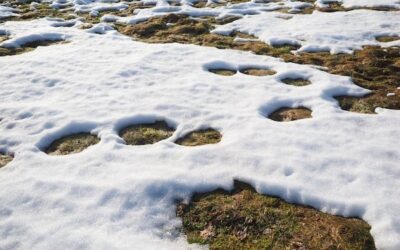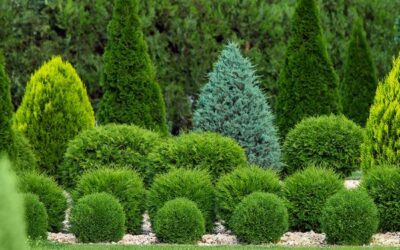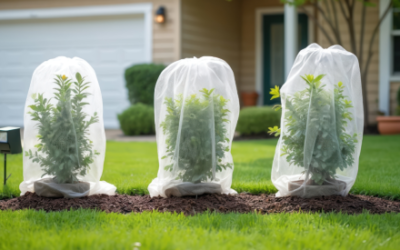Taking great care of your lawn does not always need to be an expensive undertaking. There are many simple lawn care hacks that will save you both time and money. From tackling weeds in your lawn to making your own compost bin, to choosing low-maintenance plants, to DIY pest control, there are many projects you can easily take on to help with the maintenance of your lawn and garden.
Kill Weeds with Boiling Water or Vinegar
Two lawn care hacks to rid your yard of weeds use simple kitchen basics- boiling water or vinegar. To use boiling water, simply fill a sturdy pot with water and bring it to a boil. Carefully pour the boiling water on your weeds, and the piping hot water will kill them instantly. This hack works especially well on weeds that emerge from cracks or joints on a patio or driveway. This is because the boiling water could potentially kill neighboring plants in your yard, but in these areas, this is not a concern.
To use vinegar, simply pour household vinegar, such as distilled white vinegar, into a spray bottle and carefully spray it directly onto the weeds. It is best to only do this in the morning when there is as little wind as possible. Also, keep the weather forecast in mind, as rain can wash it away before it is able to work on your weeds.
Start a Compost Bin
Start a compost bin, and you can create your own mulch for free. This mulch will help the ground retain its moisture and this will prevent weeds from spreading. Some of the items you can include in your compost bin are grass clippings, eggshells, vegetable trimmings and peels, leaves, coffee grounds and filters, and newspapers. Avoid meat or dairy products that will rot, cause an unpleasant odor, and attract rodents and pests. Stir your compost every 4-5 weeks, making sure that material in the center is brought to the outside, and the material from the outside edges are brought to the center.
Compost can be used to mulch flower beds, as potting soil, and you can sprinkle it over your grass as a lawn conditioner. Do not use it all at once as you will want to save at least a third of your original compost in order to start the process over again.
Plant Perennials Instead of Annuals
As the name indicates, annuals need to be planted and replanted yearly. This can be both time-consuming and expensive. Perennial plants, on the other hand, can last 3 or more years without needing to be replanted. Because of their longevity, they are the most cost-effective choice in the long run. You might spend more on perennials initially, but you will save time and money by not needing to replant them every year. Perennials also require less maintenance and are able to withstand adverse conditions that annuals cannot. Additionally, perennials make a great choice for your landscape plants because they are predictable every year.
Consider DIY Pest Control
There are several ways to deter small animals and pests from damaging your lawn or garden. One method is to spread coffee grounds over your yard and garden. The smell of the coffee repels certain pests such as ants, along with larger mammals like cats, rabbits, and deer. Coffee grounds are also abrasive, so placing a barrier of grounds in slug-prone areas can help protect your plants from these pests.
A second DIY pest control hack is to use citrus peels. Citrus peels contain a natural chemical that kills or repels pests called limonene. Homemade compost can be made from citrus rinds to help keep pests at bay. Citrus fruit can effectively repel a host of garden pests. Placing pieces of orange peel or zest around the garden can also help to repel flies and mosquitoes.
Another DIY hack simply involves sticking plastic forks or cutlery into the ground near your plants. As strange as this sounds, doing this can keep unwanted critters out of your garden. They will avoid having to maneuver around these pointed objects and in turn, keep your fruits, veggies, and flowers safe. This hack will also keep your garden safe from becoming an outdoor cat’s litter box.
Consider Investing in a Mulching Lawn Mower
A typical lawn mower cuts grass and shoots it off to the side. But a mulching mower cuts the grass finely and allows the cut plants to fall back to the soil. This creates a rich “mulch” which feeds the soil instantly. This means fewer fertilizer treatments will be needed for your lawn. Investing in a mulching lawn mower can save time and money. You will no longer have to clean up your grass clippings. or spend extra money on bags.
All of these simple lawn care hacks will help you to save both money and time as you tackle projects in your yard. There are many projects you can do on your own, but if you want to call in the help of a professional, look no further than Jack’s Lawn Care & Landscaping. We will work with you to ensure that when we are finished, your yard is left healthier, and more vibrant. Contact us today to find more about the high-quality lawn care services we provide.



